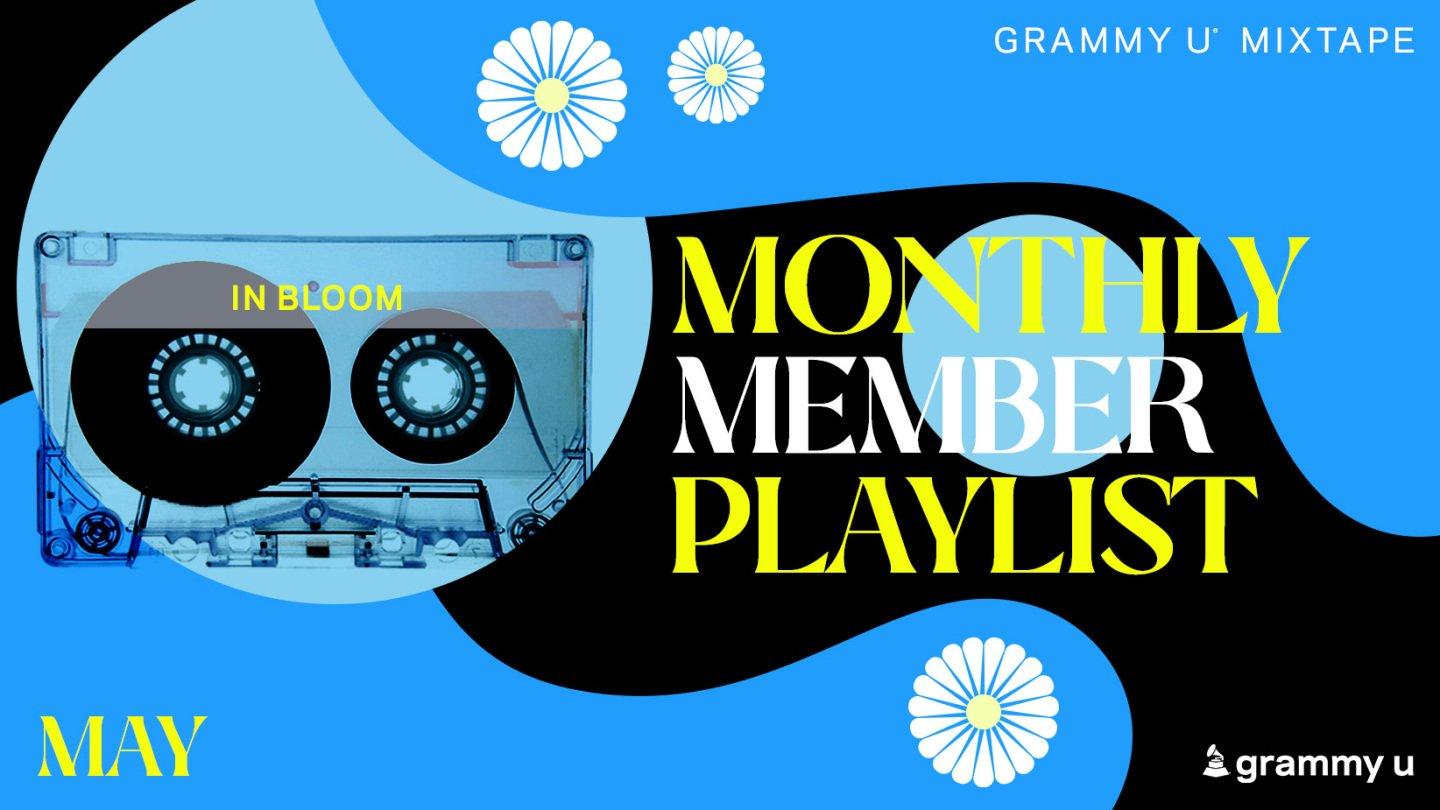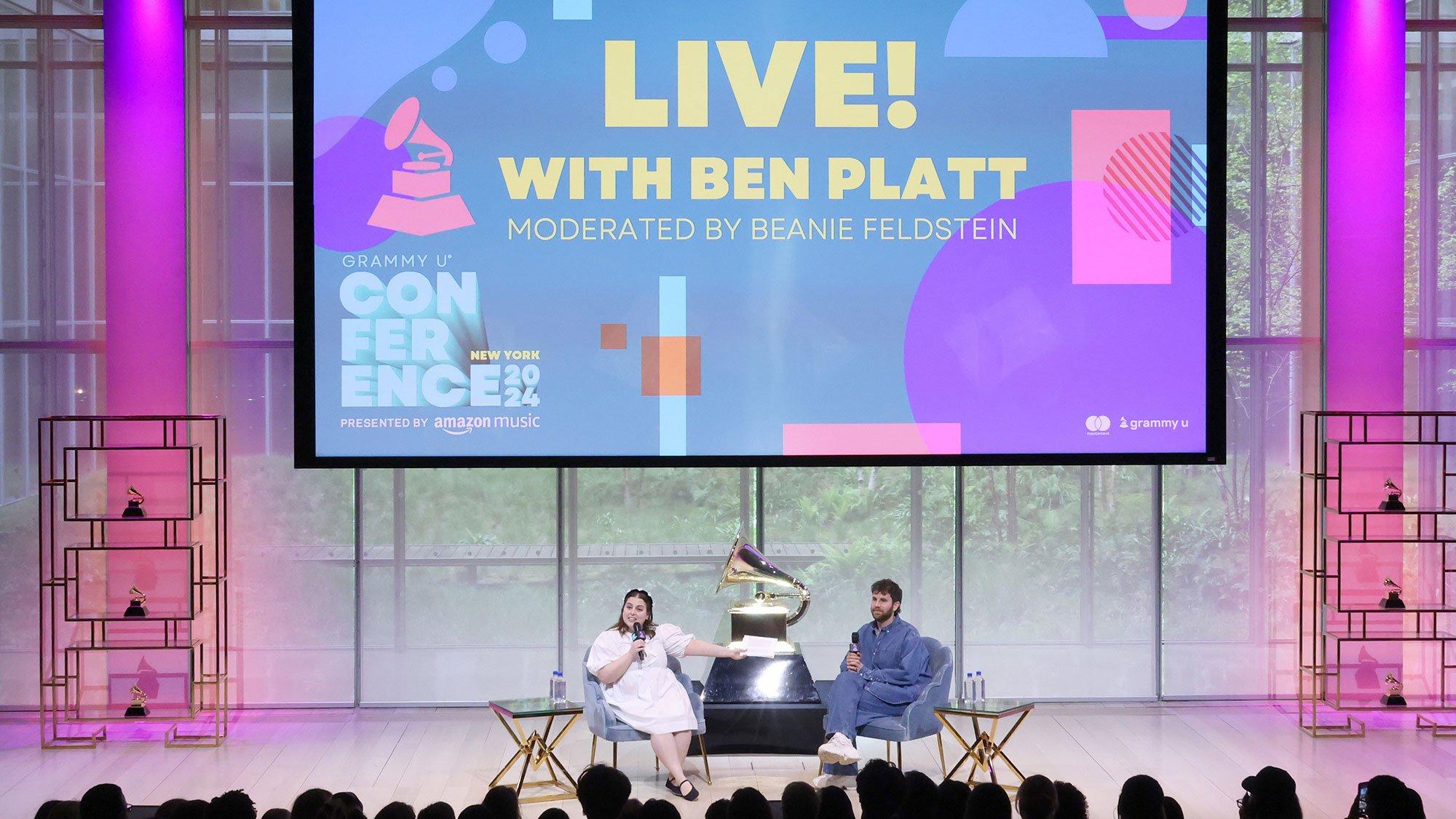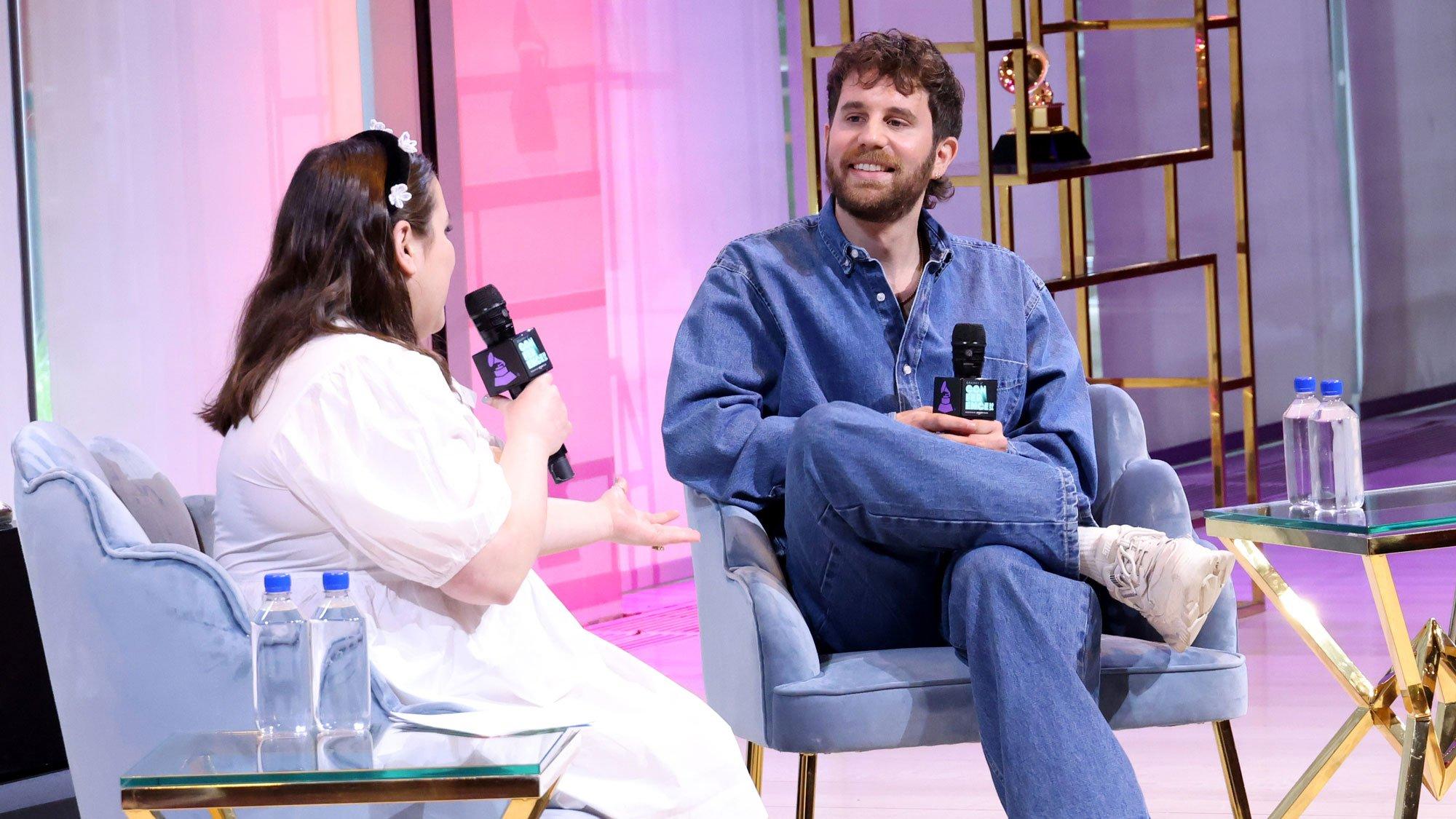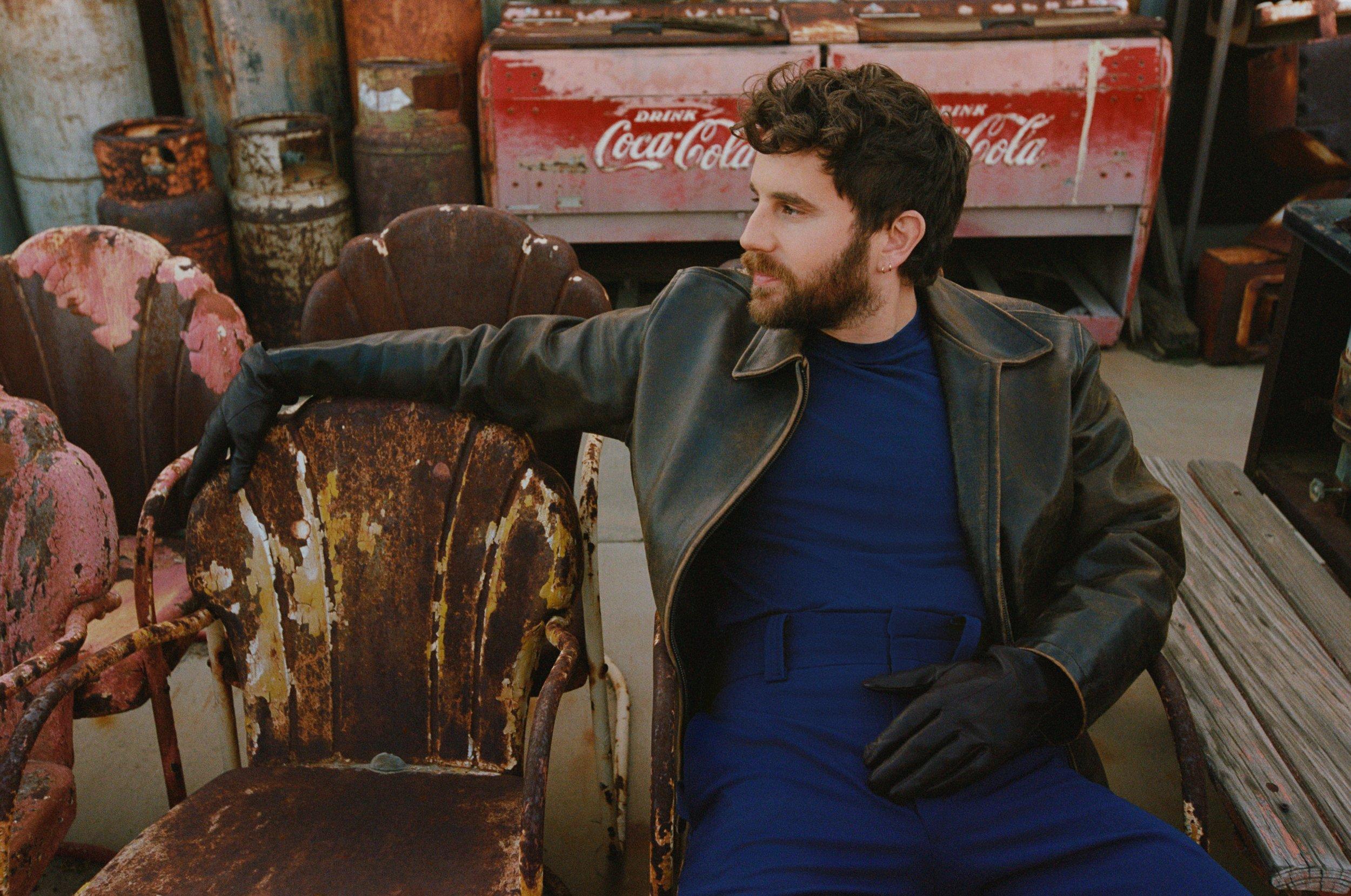In a sea of internet sensations filled with viral hits, indie-pop artist and producer Lauv has been like a shark—constantly moving forward.
The singer/songwriter's work hits you in a whole spectrum of relatable feels. Last year's I met you when I was 18 EP will have you swooning over lyrics like, "To be young and in love in New York City/ To not know who I am but still know that I'm good long as you're here with me," while "Enemies" takes you through the awkward post-breakup space when you just want to be civil: "Why do we, we have to be/ Enemies, enemies?/ Forget all the scars/ All that they are memories."
<iframe width="620" height="349" src="https://www.youtube.com/embed/AIp3IOhBYiU" frameborder="0" allow="accelerometer; autoplay; encrypted-media; gyroscope; picture-in-picture" allowfullscreen></iframe>
With more than two billion streams, a growing following of one million on Instagram and more than four hundred thousand on Twitter, the singer known as @lauvsongs has also landed on Billboard's Next Big Sound and Emerging Artist charts.
The best part? It's all on his terms.
At 25 years old, Lauv has found a way to be his own boss in the complex music industry. Through the use of AWAL streaming service for global distribution, he has been able to control how his music is shared. Being independedent may not necesarilly have been his plan in the beginning, but sometimes when one door closes, another one opens. And that's certainly the case for Lauv.
"I always felt like I was trying to prove something to these label people, and I felt very intimidated," he told the Recording Academy. "I think once stuff started to happen for me and really once I put out, 'I Like Me Better,' I was like, wait a second. The tables are flipped. It's now possible for me to do this without the people that made me feel intimidated."
The Los Angeles-based artist, who originally wanted to work for other artists while studying at NYU and who has also penned songs for the likes of Charli XCX and Demi Lovato, is working on his forthcoming debut album. This time around, he's writing about more than just love. One of the topics he tackles is his own journey with mental health, something he is very open and honest about on social media.
Lauv recently spoke to the Recording Academy about his mental health journey, his latest single "f***, i'm lonely," navigating the industry as an indepependent artist and more.
You went to NYU. What did you major in?
Yes. Music technology.
What did you learn majoring in that?
Basically, it's just all audio engineering stuff, learning proper miking techniques, music theory, and music history, ear training, some production classes, music for film classes, learning how to build a synth, really building stuff.
So how did you get into singing and songwriting?
I wasn't playing music when I was a little kid. I always played the piano and then I played viola and then guitar. And when I was 13, that's the first time I tried to write a song. And then I just fell in love. My voice sucked. I was really bad at singing. I remember I played in some bands and my friend's dad was like, "You guys need to get a new singer." But then I just stuck with it and kept writing songs and probably wrote, at this point, I've written thousands of songs.
How did you develop the voice you have now?
I did some vocal training, but I think it was about me ... I used to try to force my voice to be something that wasn't right. I wanted to sing, I wanted to belt super loud and like I was wrecking my voice. I think like once I started singing more in my head voice in Falsetto, I discovered a whole new side of my abilities and that's where I ended up finding my style.
I want to get back to music education a little bit because I feel like a lot of young people get into a major and then end up in working in a field that isn't related to it. Has your major helped you in any way with your singing and your songwriting?
Yeah, no, I think so. Just getting the experience of some of the more specific things like the music theory and the ear training and also just getting the opportunity to be studying something and honing all the technical parts as I was trying to find my own creative voice, I think it was a really good combination.
You've done songwriting for artists like Charlie XCX. How do you decide when a song is for you and when you're going to give it to somebody else?
That's a good question. I think it's just when I make a song and it and it feels like a song that I need to sing, meaning it's really truly about my life, then those are the songs that I just don't want to give away. But sometimes, because I can't really control the creative process, sometimes there's a song that I love but it doesn't feel like a song that I need to sing, if that makes sense. Yeah, that's the difference for me.
What are the different skills that you use, say, for producing versus songwriting?
Oh, that's a good question. No one's really ever asked me that. I guess production has just been all my years nerding out on my computer. The thing is for me, I would say I'm more of a songwriter than I am a producer. Even though I produce most of my own stuff, I feel like I always focus on the song; the lyrics and the melody and the chords, and the production really for me is just trying to support and not get in the way of the song. That's the way I think about it because it's so easy for producers to make something amazing, but it gets in the way of the song.
<iframe width="620" height="349" src="https://www.youtube.com/embed/Klsi8CbSm8Y" frameborder="0" allow="accelerometer; autoplay; encrypted-media; gyroscope; picture-in-picture" allowfullscreen></iframe>
You own your own music. It took Tom Petty a huge battle to get his rights back. Going into music, were you always aware that you wanted to own your own music?
No. My whole dream was to get signed to a record label. It was always that when I was a kid.
So how did you get here? How did you decide, "I'm going to do this independent thing"?
Well, basically ... That's a really good question. The funny thing is before I started releasing music in 2015, I didn't really have that much traction. In that time, I met with some labels and people were always ... I always felt like I was trying to prove something to these label people, and I felt very intimidated. I think once stuff started to happen for me and really once I put out "I Like Me Better," I was like, wait a second. The tables are flipped. It's now possible for me to do this without the people that made me feel intimidated, to be honest. I could do this with my management that I love and build a team around me that feels like people that I genuinely feel connected to on. I have nothing against major labels. I think for a lot of artists that makes a lot of sense. But for me, I just have this weird complex where I feel intimidated by stuff like that for some reason.
So has it been a process where you're learning as you go about the business? Have you nerded out on books or how have you navigated it all?
I rarely read, sadly. Yeah, I think I've definitely been learning along the way, mostly conversations with my team and my attorney and stuff like that. We talk a lot. I definitely stay out of the details of the business because I just don't really have the bandwidth. I'm trying to focus on just making the album and so on and so forth. But as I go along the way, I'm definitely gleaning stuff.
So you released your own music, and I've noticed that you like to release some songs on Instagram. How come?
Yes. Because to be honest, I have so many songs. I can't even tell you how many songs I have. Right now, I'm trying to figure out which ones are going to be on the album. There's all this release strategy about when's the best time to put out songs and so on and so forth, timing. I'm always just like, f**k it. I want to give people music so if I have an idea. I just leak it and then that's it.
Tierra Whack released a mini album on IG. Do you think you'd ever do something like that?
That's f**king sick. I actually didn't know that. That would be sick. I would love to do something like that. I'm pretty sure my managers would kill me.
Do you feel like social media has been your greatest tool as an artist?
I think it's been probably. I think along with Spotify and Apple Music and just streaming in general. Social media has definitely been the best way for me to build an actual connection with my fans and not just be songs but be a real thing.
<iframe width="620" height="349" src="https://www.youtube.com/embed/W775nQuxOwY" frameborder="0" allow="accelerometer; autoplay; encrypted-media; gyroscope; picture-in-picture" allowfullscreen></iframe>
How did you find out about AWAL and why did you decide to use it?
I'm trying to remember how I originally found out about them. I think it's just something that came up through these people I knew in the industry as they were transitioning from just doing the AWAL deals to doing the more high profile full services deals. Around that time, I think someone on my team had worked with them in the past and said they were amazing. Then I met with them and then loved it.
How helpful has it been to you?
Really helpful. Yeah. No, it's been super helpful. They've been super amazing. I actually have a team there that puts in a lot of work around the world. So it's really cool that I get to do it in a way were I control everything and I own everything, but I have a team that's actually working really hard.
What is the most challenging thing about being an independent artist today?
I think honestly just getting people to take it seriously sometimes. I think sometimes people ... obviously there's Chance The Rapper, and he's a legend, but I think a lot of people ... there's all these associations between artists; these people in the public or these people are on whatever, whatever it might be. I know there's a lot of events to bring artists together and stuff. And I always feel like I'm on the outside looking in a little bit.
What about the greatest thing about being an independent artist?
Oh, the greatest thing? Getting to do whatever I want and yeah, owning my masters, for sure.
Your single "Sad Forever" continues the conversation you started in "Drugs And The Internet" about your journey with mental health and medication. How did you decide to seek medication?
That's a really good question. Honestly, I was super resistant towards it. One time when I was in college, I went through depression and they tried to prescribe me some meds and I never took them. I think I always felt like I was better than that or something. I had this idea in my head that started to change the way I thought. But after talking to my family, because there's some mental health stuff in my family, and also talking to my therapist and psychiatrist, I felt like I was at such a low point that I just didn't really have any other options because I was having such bad obsessive thoughts that I couldn't get out of and that I couldn't live my normal life. So I felt like I had no other option. Once I gave them a shot, it all clicked to me how important it was for me to be open to it. Some of the mental health stuff is really illogical. It's not just think more positively because sometimes chemically, you're lacking chemicals you need, so you really can't think positively. Everything feels negative no matter how positive it is. So I think for some people it's important to be open to medication, not for everybody, but for some people.
How are you doing now?
It's been good. Well, let's see. I won't bore you with too many details, but there's been some trial and error trying to find the right medication, but I'm currently, especially on a mood stabilizer. That's helped me not swing really high and then swing really low. I'm still always figuring it out and trying to get the dosage right and get to a place where I feel like my normal is a real good place, that I'm not sitting really low where I'm not sitting very high, but I'm just sitting at a normal place.
In "Sad Forever" there's a lyric that says, "Sometimes I just want to give up." Is that related to you personally?
Yeah, yeah. I'm just thankful to not be there right now. I've definitely felt that way and that's definitely just a story about my life, but I'm just thankful that I'm in a better place now.
What gives you hope?
God, what gives me hope? I think my friends, my family, my dog, and just knowing that ... I can actually have a real impact on other people's lives and not just make the music that they can party to, but make something that can help them get through something. I know that my favorite music always did that for me. I think just the thought of being able to do that for somebody is really special.
Is that why you've been so open with your journey?
Yes. I'm the type of person where I feel I have to be an open book or else I feel really weird. I don't know why.
Tell me about your latest single
Yes. Yeah. The song is called "F**k, I'm Lonely," and basically ... Well, actually it's the least deep song I put out. It's just a fun one because I'm so used to making songs that are so ... Obviously "Drugs And The Internet" and "Sad Forever" are one thing. It's basically about missing somebody. It's pretty straightforward. I did it with Anne Marie, who is an amazing artist and a massive pleasure to work with.
You're also working on an album. Can we get any more details on that?
So it's called How I'm Feeling and basically all the songs that I've put out so far, like "Drugs and the Internet" and "Sad Forever" and "F**k, I'm Lonely" are all part of the album. Basically, I'm still working on it, but I want to keep writing some songs until the album's done and then I'll drop the rest of the album. And basically I'd say how it's different than my first project, which I mentioned was when I was 18, it's moreso just about everything in my life. It's not just about me in a relationship. I have songs about that my parents and my best friends and my dog and my favorite bar, literally everything.
You're starting a tour in October. Do you think the album will be out by then?
That would be amazing. But, I don't know.





